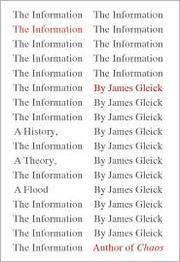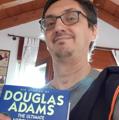Nonya Bidniss reviewed The Information by James Gleick
The Information by James Gleick
3 stars
A good book if you want to know everything about information from the concept of information to the history & development of theories and technologies. A real soup to nuts book. One of the key things I learned is that information theory and all that goes into it is just not of interest to me. (shrug) But if you're into it, I bet you'll really like this book.
A good book if you want to know everything about information from the concept of information to the history & development of theories and technologies. A real soup to nuts book. One of the key things I learned is that information theory and all that goes into it is just not of interest to me. (shrug) But if you're into it, I bet you'll really like this book.


